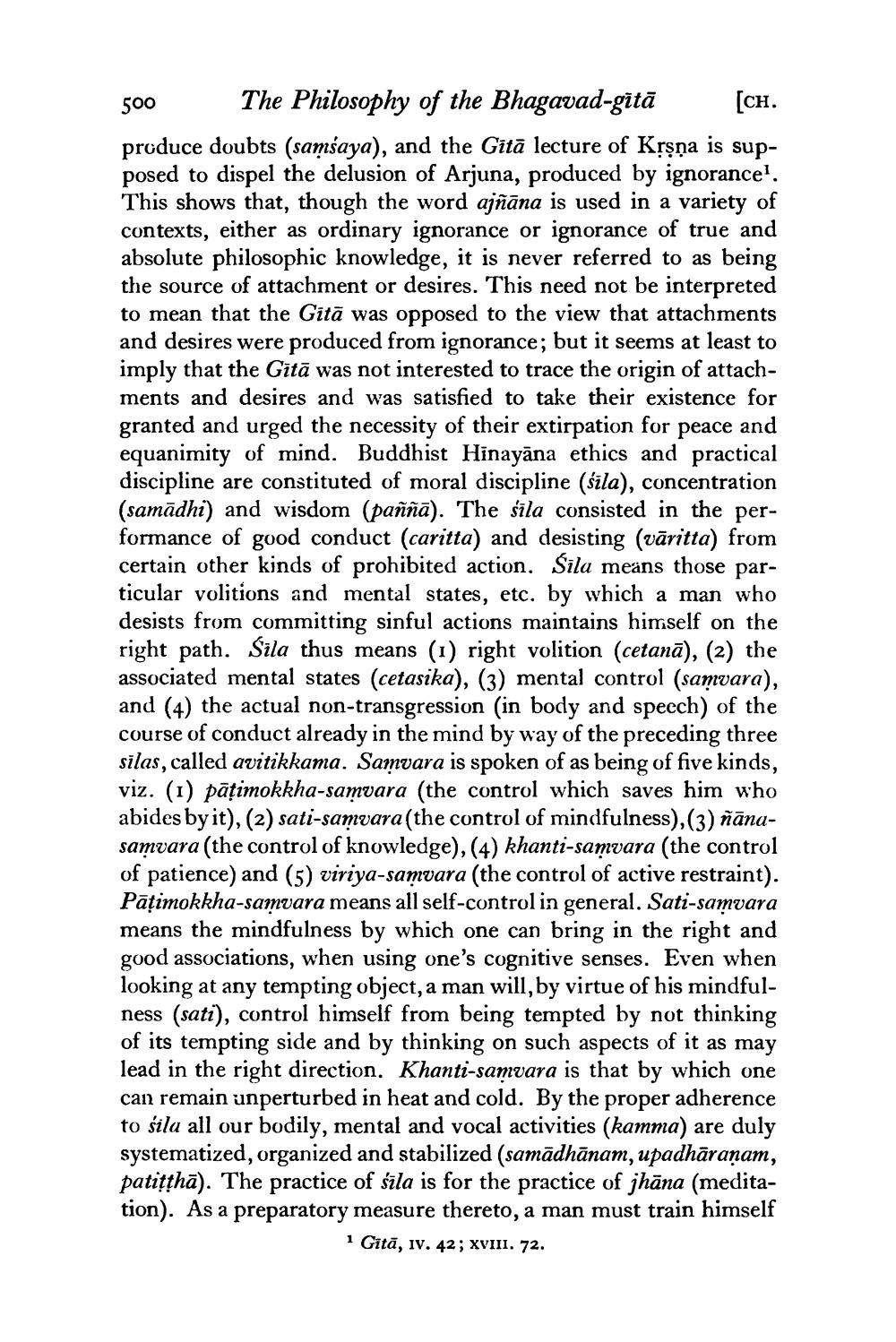________________
500
The Philosophy of the Bhagavad-gitā [CH. produce doubts (samsaya), and the Gitā lecture of Krşņa is supposed to dispel the delusion of Arjuna, produced by ignorance?. This shows that, though the word ajñāna is used in a variety of contexts, either as ordinary ignorance or ignorance of true and absolute philosophic knowledge, it is never referred to as being the source of attachment or desires. This need not be interpreted to mean that the Gitā was opposed to the view that attachments and desires were produced from ignorance; but it seems at least to imply that the Gītā was not interested to trace the origin of attachments and desires and was satisfied to take their existence for granted and urged the necessity of their extirpation for peace and equanimity of mind. Buddhist Hinayāna ethics and practical discipline are constituted of moral discipline (śīla), concentration (samādhi) and wisdom (paññā). The sîla consisted in the performance of good conduct (caritta) and desisting (vāritta) from certain other kinds of prohibited action. Sila means those particular volitions and mental states, etc. by which a man who desists from committing sinful actions maintains himself on the right path. Sila thus means (1) right volition (cetanā), (2) the associated mental states (cetasika), (3) mental control (samvara), and (4) the actual non-transgression (in body and speech) of the course of conduct already in the mind by way of the preceding three silas, called avitikkama. Samvara is spoken of as being of five kinds, viz. (1) pāțimokkha-samvara (the control which saves him who abides by it), (2) sati-samvara(the control of mindfulness),(3) ñānasamvara (the control of knowledge), (4) khanti-samvara (the control of patience) and (5) viriya-samvara (the control of active restraint). Pāțimokkha-samvara means all self-control in general. Sati-samvara means the mindfulness by which one can bring in the right and good associations, when using one's cognitive senses. Even when looking at any tempting object, a man will, by virtue of his mindfulness (sati), control himself from being tempted by not thinking of its tempting side and by thinking on such aspects of it as may lead in the right direction. Khanti-samvara is that by which one can remain unperturbed in heat and cold. By the proper adherence to sila all our bodily, mental and vocal activities (kamma) are duly systematized, organized and stabilized (samādhānam, upadhāranam, patițțhā). The practice of śīla is for the practice of jhāna (meditation). As a preparatory measure thereto, a man must train himself
1 Gitā, iv. 42; XVIII. 72.




